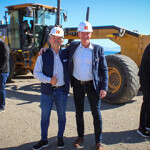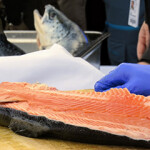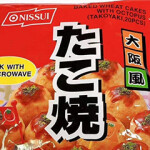Investigators say biofouling likely caused Cooke pen collapse
Mussels and other sea life growing on the nets in Cooke Aquaculture Atlantic salmon pens near Cypress Island, Washington, may have been responsible for the collapse of the structure last August, according to a Seattle Times report.
The collapse, which released more than 150,000 non-native fish into Puget Sound, has set off a firestorm of criticism toward the Canadian aquaculture firm, resulting in a lawsuit against the company and a bill being introduced by Senator Kevin Ranker in the Washington State Congress attempting to ban all Atlantic salmon fishing in the state.
Cooke has also had its permit revoked for another of its salmon farms in Washington.
Photographs of the Cypress Island pen show the remainder of the nets being so covered with mussel and seaweed that the net itself was not visible.
According to The Seattle Times, records show that two of three machines that Cooke employees used to clean the nets were not serviceable or in use when the escape happened.
“Nets need more cleaning in the summer. Broken net washers affected the cleaning schedule. Fouling at Site 2 was 7 out of 10, it is usually 4 out of 10,” notes from investigators looking into the site collapse read.
Joel Richardson, Cooke vice president of communications did not comment on reports that sea life on the nets caused the collapse.
According to Parker MacCready, a professor of oceanography at the University of Washington, it is important to keep aquaculture nets free of any debris because it changes how they move under the water during natural wave currents. If the nets get too heavy with debris, it weighs them down, and allows them to act as anchors. According to Jim Thomson, an oceanography professor and fluid-mechanics researcher at the University of Washington, the drag forces of the Cooke nets in question likely doubled with the muscles and kelp attached to them.






Share